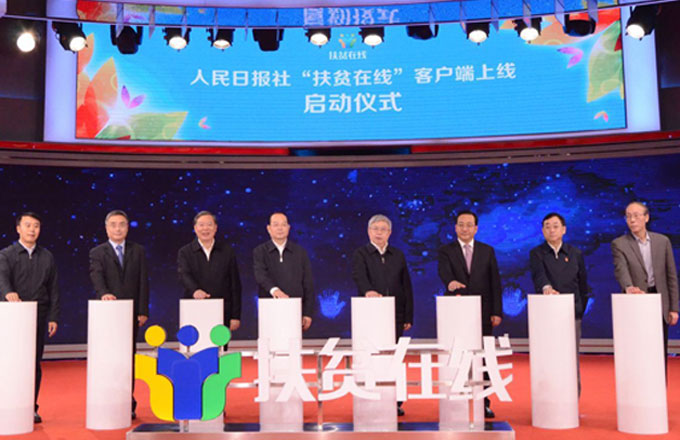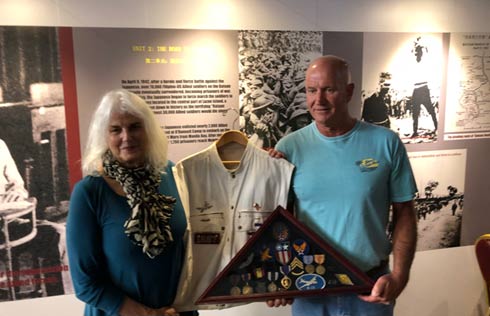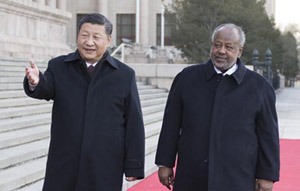China, Hungary deepen cooperation to achieve fruitful results -- ambassador
BUDAPEST -- "China and Hungary have enjoyed frequent exchanges and fruitful achievements in the development of bilateral relations in such fields as politics, economy, trade, finance and humanities," Chinese Ambassador to Hungary Duan Jielong has said.
A first batch of electric buses has been produced at Chinese automaker BYD's factory in the northern Hungarian city of Komarom, which vividly illustrated that the Belt and Road Initiative and the "16+1" cooperation mechanism have pushed China-Hungary relations to a new level, Duan said in a recent interview with Xinhua.
Proposed by Chinese President Xi Jinping in 2013, the Belt and Road Initiative aims to build trade and infrastructure networks connecting Asia with Europe and Africa on and beyond the ancient Silk Road routes. It comprises the Silk Road Economic Belt and the 21st Century Maritime Silk Road.
Accounting for about half of China's total investment in Central and Eastern Europe (CEE), China's current investment in Hungary has reached 4.1 billion U.S. dollars, creating about 10,000 local jobs, according to the ambassador.
Since diplomatic ties were established 68 years ago, "friendship and cooperation have always been the main theme of relations between the two countries," he noted.
Relations between China and Hungary have entered the best period in history with frequent high-level visits and mutual trust in practical cooperation, said Duan, referring to the memorandum of understanding over the Belt and Road Initiative signed by the two countries in June 2015.
Hungary is the first European country that has established and started the Belt and Road working group mechanism with China, which signified a successful joining of the China-proposed initiative with Hungary's "opening to the East" policy, according to Duan.
In May, President Xi and Hungarian Prime Minister Viktor Orban decided to upgrade the China-Hungary relations to a full-scale strategic partnership, Duan said.
China is Hungary's most important trading partner outside Europe while Hungary remains China's third largest trading partner in Central and Eastern Europe.
Last year, bilateral trade volume reached 8.89 billion dollars with a 10.1 percent year-on-year growth. In the first half of this year, two-way trade volume reached 4.85 billion dollars, a 17.3 percent increase over the same period of last year.
Deepening financial cooperation between the two countries has also created favorable conditions for Chinese enterprises to settle in Hungary.
In 2015, the People's Bank of China -- China's central bank -- authorized the Bank of China to act as the Chinese yuan clearing bank in Hungary, which is also the first Chinese yuan clearing bank in the CEE.
"Since December 2016, direct transactions have started between Chinese yuan and the Hungarian forint in China's interbank foreign exchange market," the ambassador said.
Within the framework of 16+1 cooperation, Hungary has actively participated in the China-CEE Investment Cooperation Fund. The series of financial cooperation initiatives have effectively promoted trade and investment cooperation between the two countries, he added.
The China-CEE cooperation framework, known as the 16+1, is a platform created in April 2012 by China and 16 CEE countries.
Duan believed that with joint efforts from both parties, more Chinese enterprises would come to Hungary to find business opportunities and achieve mutual benefits and win-win results.
Speaking of bilateral cooperation in humanities, Duan said, "Since 2006, China has set up four Confucius Institutes in Hungary," which have played an active role in promoting bilateral cultural exchanges.
In addition, the Hungarian-Chinese Bilingual Primary and Secondary School, jointly organized by the two governments, is the only public school in the CEE that uses two languages, according to the ambassador.
On Chinese Premier Li Keqiang's upcoming visit to Hungary and his participation in the 6th summit of leaders of China and CEE countries, the diplomat said that within the context of the success of the 19th National Congress of the Communist Party of China in October and the fifth anniversary of the establishment of the 16+1 cooperation mechanism, this visit will be an important diplomatic event to the CEE region by the Chinese party and state leaders.
It will be also Li's first visit to Hungary since the establishment of the comprehensive strategic partnership between the two countries, and will be of great significance to develop China-EU relations, promote the Belt and Road construction and enhance the 16+1 cooperation, Duan said.
Against the background of establishing a comprehensive strategic partnership between China and Hungary, bilateral cooperation in politics, economy, trade and humanities will surely continue to be deepened, Duan said.























